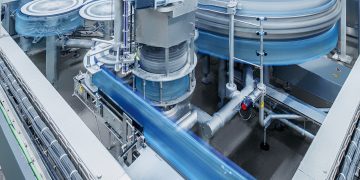Digital Journal – As with many prominent global industries, the food industry has had to re-think its processes in the past few years to ensure food safety is at the heart of business. Of course, food safety has always been critical, but with the added risk of viruses and the pandemic, it is more crucial now than ever before.
Thankfully, automation has solved many challenges regarding food safety and other issues that have come to light in recent years.
Automation has many benefits for the food industry, from optimizing quality control and efficiency and making it easier to scale up individual businesses. The companies who benefit from automation don’t have to be large manufacturers; small food businesses can use automation during their initial recruitment periods. Or, if funds don’t allow an extensive employee list, companies can choose to use automation instead of hiring more workers.
This was beneficial during the pandemic when more companies realized the risks of bringing a high number of workers on site for daily activities. While this may be problematic for the employment side of things, from a business point of view, food companies can make more profit by having fewer people on their payroll and instead using different automation forms.
Pandemic and safety risks aside, we must point out the different benefits automation can have to those occupying the food industry;
Quality control
When you think of machines that have been programmed and configured to work precisely, you can imagine that these results are more accurate than those of a human. When applying this to food industry practices, using machines in the manufacturing process helps to oversee that quality is of the highest standard.
For example, a drinks company uses a machine to measure ingredients for the product’s recipe. As a result, the company will have peace of mind that each drink has the exact measurements to keep the final taste consistent. And, if it seemed there was an issue, it would be easier to go through the manufacturing process and find the cause.
Traceability
Using food manufacturing ERP software or programmable automation makes a food company’s manufacturing process much easier to manage and trace. As a result, businesses can view their analytics and data to keep track of perishable products’ shelf life, maximizing profit and reducing waste.
This traceable data can also ensure the company is more reliable, as analytics can pick up inconsistencies. For example, if a machine isn’t performing as efficiently, the data will reflect this and make it easy to spot.



















